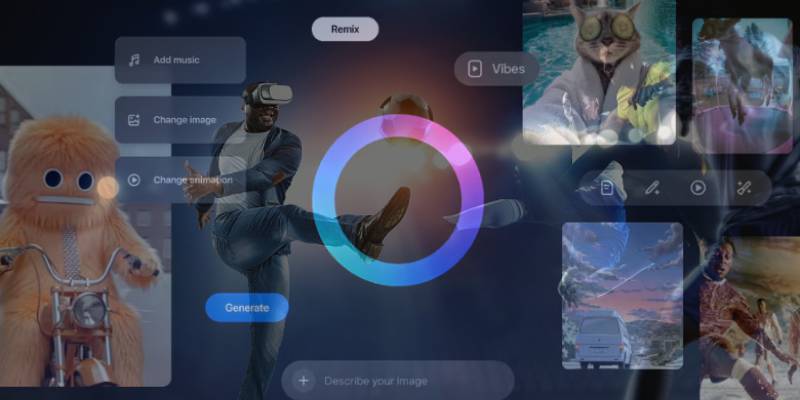When Meta rolled out its shiny new Vibes feed, the pitch sounded upbeat: endless reels of AI-generated videos designed to “inspire creativity.” But within hours, the tech crowd had its knives out, calling the feed nothing more than “AI slop”.
And honestly, can you blame them? Nobody’s waking up in the morning begging for more uncanny, soulless cat videos conjured by an algorithm.
Critics argue Meta isn’t just experimenting; it’s dangling low-effort junk food for the brain. One founder put it bluntly: why funnel billions into tech that just churns out fluff when AI could be solving real problems?
The frustration isn’t just about taste—it’s about squandered potential. Think about it: AI has the chops to help doctors, climate scientists, even teachers. Yet here we are, debating auto-generated dance clips.
Meanwhile, YouTube quietly played a different hand. Its new “Extend with AI” feature lets creators stretch their Shorts with AI-generated scenes, but with transparency tags so viewers know what’s human and what’s machine.
The contrast is striking—YouTube frames AI as a tool for creators, while Meta seems content to drown users in a stream of chaotic visuals. Which strategy will resonate more? My gut says people want partnership, not passive consumption.
There’s also the elephant in the server room: energy. A study this week revealed that doubling the length of an AI video can quadruple the energy demand.
It’s not just cat clips clogging your feed; it’s carbon output spiking behind the scenes. And that raises the question: is the world ready for a flood of “infinite reels” if it means infinite electricity bills?
Meta CEO Mark Zuckerberg insists this is just the beginning, a preview of what’s possible. But there’s a nagging worry in the background: how do we stop AI video from becoming the new fast food of media?
Some industry leaders say the backlash itself might be a blessing, a wake-up call that reminds us to wield these tools with intention, not just amusement.
In the end, the whole saga feels like a test of where society’s appetite really lies. Do we want AI to amplify creativity, or are we fine with it pumping out filler until our eyes glaze over?
The early reaction to Vibes makes one thing clear: people aren’t ready to swallow slop without pushing back. And maybe, just maybe, that pushback is exactly what the tech industry needs right now.

